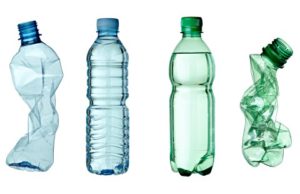A new study says that while water bottles have become more environmentally friendly over the years through lightweighting, factors such as labels and glue still can greatly impact their recyclability.
Plastic Technologies Inc. of Holland, Ohio, is out with a new white paper after studying water bottles purchased in different parts of the world.
“The big takeaway is that the bottles are probably reaching the technical limit of what the light-weight bottle could handle, but at the same time, they could be better from a recycler’s point of view,” said Marcio Amazonas, one of three authors of the paper.
Amazonas is PTI’s director of Latin American operations and involved with sustainability work at the company.
“We thought PTI could be a neutral source to access the good, the bad and the ugly design,” he said. “I think designers are bragging maybe a bit too much of the good things they do and maybe they don’t have control over the whole process, especially when it comes to labeling.”
PET recycling can become contaminated by using the wrong label material or inks that bleed. Even the type of glue used can have an impact, said Amazonas, who authored the paper with Greg Fisher and Wei Zhang.
Water bottle designers have lowered the weight of their containers to 7.5 to 8.5 grams in some low-priced products, about one-third of the 22 to 23 grams still found in premium packaging tested by PTI.
Paper labels, for example, can be more difficult to remove in the recycling process. And bits of paper fiber and glue that remain on PET after the separation process can burn and cause black marks when flake is later heated.
Cheaper inks, which will bleed while in the water-based separation process, also can contaminate recycled flake and cause discoloration of recycled plastic.
Designers can pay more attention to these issues to create less problems for PET recyclers, PTI said in the report.
PTI purchased the top-selling 500 milliliter water bottles from stores in the United States, Mexico, India and Europe to conduct the research.
The paper indicated that five of seven bottle samples in the United States “will have some issue during the recycling process” when considering guidelines from the Association of Plastic Recyclers. The same was true for four of six bottles from Europe.
All label samples caused color and clarity change in the wash process, with label ink bleeding being most common.
Soluble inks and glues, as well as label substrate compatibility with PET recycling, could improve recyclability, the paper states.
“Bottlers must look beyond the bottle itself and include components such as labels, inks and closures to truly understand their impact on the waste stream,” the paper states.



